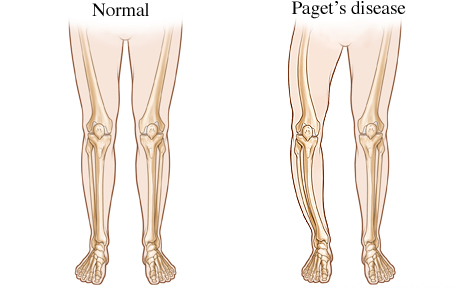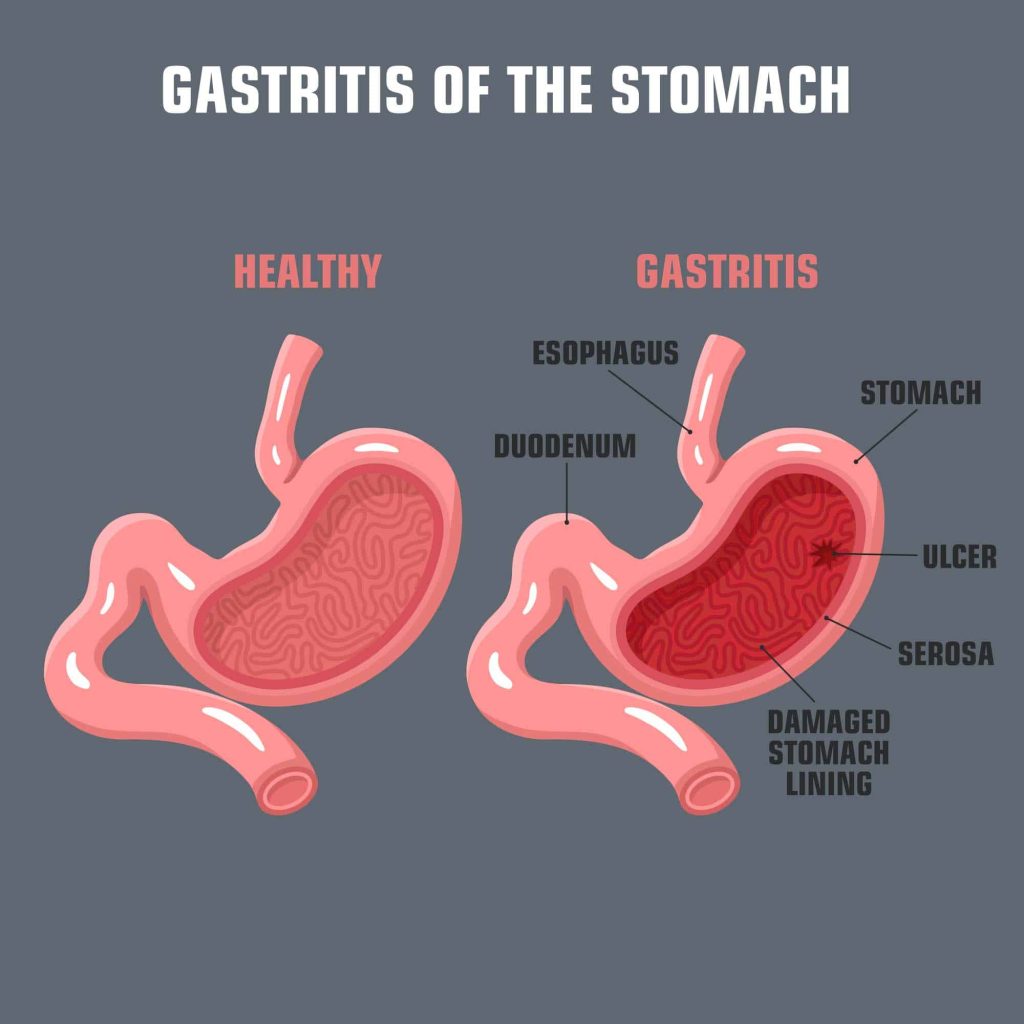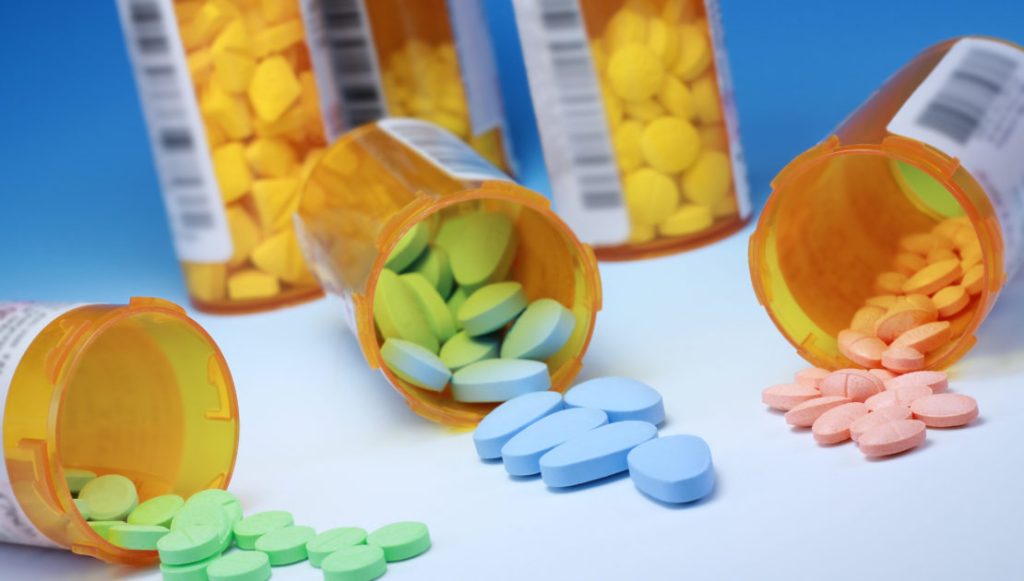Important parameter of Paget’s disease you need to know
Paget’s disease(Osteitis deformans), a chronic bone ailment, is characterised by excessive bone regeneration and disintegration in the diseased bone. Many individuals have no symptoms. The condition is uncommon in those under the age of 50 and becomes more prevalent as you become older. People with Northern European descent seem to get it more frequently.
What is Paget’s disease of the bone?
After osteoporosis, Paget’s disease affects bones in a rather high number of people. It is a disease of the process of remodelling bones, in which the body absorbs old bone and produces atypical new bone.

Errors in the bone remodelling process can lead to abnormal bone. With Paget’s disease, the body may produce new bone in the wrong places or shed old bone from its proper placements.
This process can result in fractures, arthritis, deformities, bone discomfort, and bone weakness. Due to the disease’s sometimes minor or undetectable symptoms, many people with Paget’s disease are unaware that they even have it.
Due to flaws in the bone renewal process, if a person with Paget’s disease fractures a bone, the healing process could take a very lengthy period.
Symptoms of Paget’s disease.
Due to the absence of symptoms, a lot of people are unaware that they have Paget’s illness. Additionally, any symptoms could be misdiagnosed as arthritis or another bone ailment.
Joint or bone pain is one of the most frequent complaints. The skin around the areas affected by Paget’s disease may be sensitive or red, and joints may swell. Some individuals only realise they have Paget’s disease when they break a fragile bone, which can happen in some cases.
Most frequently, the following bones are affected by Paget’s disease:
- the femur
- the back
- the brain
- thighbone, or femur
- or shin bone, is the tibia.
Numerous important nerves in the body pass through or near the bones, therefore aberrant bone growth could result in a bone compressing, nicking, or damaging a nerve, resulting in discomfort.
Symptoms of Paget’s disease
Paget’s disease of the bone may have minimal or no symptoms in its early stages. If symptoms do materialise, they might comprise:
- bone ache
- joints hurt (especially in the back, hips, and knees)
- headache
- bones in the thighs and lower legs have grown in size.
- bones in the thighs and lower legs bowing
- enlarged skull at the region of the forehead
Later stages of the condition could see the emergence of the following symptoms:
- afflicted limbs are bowing more than usual
- stumbling steps
- joint discomfort or potentially joint swelling (arthritis)
- bones with impacted fractures
- Sensational shifts
- muscular challenges
- loss of hearing (if the skull is affected)
- distorted bones
- bent spine
What causes Paget’s disease?
Paget’s disease of the bones has an elusive exact cause. There are, however, some risk factors connected to the illness:
- Genetics: A possible factor is family history. A relative with Paget’s disease affects 10% to 30% of those who have the disease themselves.
- Age: People under the age of 40 are rarely affected by the illness. As you age, your chance of getting Paget’s disease rises.
- Geographical distribution: People of Anglo-Saxon ancestry living in North America, Australia, New Zealand, and Europe are frequently affected by Paget’s disease of the bone. In Scandinavia, Asia, and Africa, it is uncommon.
- Viral infection: Infection with a “slow virus”: In individuals with genetic risk factors, the disease may be brought on by this virus. But additional study is required to prove the connection.
What happens to your bones with Paget’s disease?
In normal circumstances, the body regularly transforms old bone into new bone. Remodeling is the name of this process. Osteoclasts, which degrade bone, and osteoblasts, which promote bone regrowth, are the two types of cells involved.
Naturally, remodelling slows down over time. However, the procedure is hampered by Paget’s disease. Osteoblast activity decreases as osteoclast activity increases. In response, the osteoblasts reform an excessive amount of weak, irregular bone.
The sickness probably won’t interfere with your daily life in the early stages. That’s because early on, it only produces minor or no symptoms. But when the condition worsens, it may result in pain and skeletal abnormalities. Unless it is treated quickly, this might make it challenging to carry out daily tasks.
How do treat Paget’s disease?
You might not need therapy if you don’t have any symptoms. In this situation, you’ll need to see your doctor frequently so they can keep an eye on your symptoms.
However, you could require treatment if you experience symptoms or if you’re at risk for consequences. Treatment’s objective is to:
- lessen the likelihood of complications
- control skeletal and joint pain
- slow down the renovation
- avoid or treat fractures
- fix skeletal abnormalities
The most effective treatments depend on how serious your problem is. Your physician might advise:
- Diet: No specific diet is required for Paget’s disease of the bones. However, it’s crucial to consume enough calcium and vitamin D, which are necessary for strong bones.
- Assistive devices: A cane may be helpful if you get symptoms in your pelvis or leg. Additionally, a brace may lessen pain.
- Over-the-counter pain relievers: Nonsteroidal anti-inflammatory medicines (NSAIDs) are available over-the-counter and can help control minor bone discomfort. Aspirin, naproxen, and ibuprofen are examples of such medications.
- Medication: Intravenous administration of bisphosphonates can slow down the fast remodelling of bone. Calcitonin can control how new bone is formed.
- Surgery: Surgery may be used to treat Paget’s disease complications. Surgery for fractures, malformed bones, or severe arthritis falls under this category.
Points to remeber
- The bone disease Paget’s is a chronic disorder that worsens gradually over time. The bone grows abundantly because it degrades too quickly. Deformed and weak bones result from this.
- Most of the time, especially in the first stages, the disease exhibits only minor or no symptoms. When symptoms do show up, they frequently include discomfort, trouble walking, and a higher chance of fractures.
- However, medicine can be used to manage Paget’s disease of the bones. Early intervention can reduce risks and preserve quality of life.
REFERENCES:
- https://www.healthline.com/health/pagets-disease-of-bone
- https://www.medicalnewstoday.com/articles/177668
- https://my.clevelandclinic.org/health/diseases/21929-pagets-disease-of-the-bone
- https://www.ncbi.nlm.nih.gov/pmc/articles/PMC3383486/
For more details, kindly visit below.


